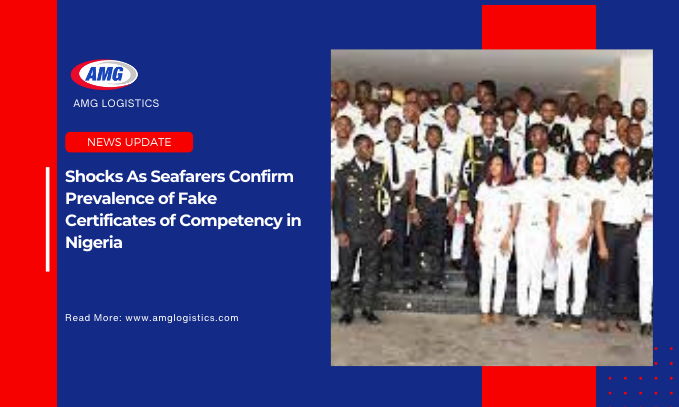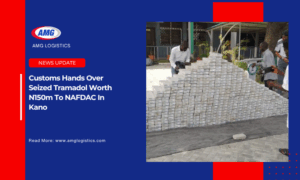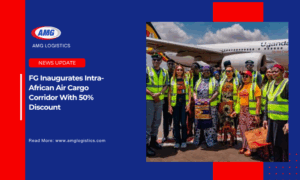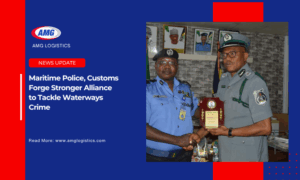About five years after Shipping Position Daily unearthed the presence of a certificate racketeering syndicate,Nigerian seafarers have again confirmed that the nation’s maritime industry is still faced with fake certification, especially questionable Certificates of Competency (CoC)
Seafarers who spoke with Shipping Position Daily last week lamented that proliferation of fraudulent certifications continues to undermine the integrity of the country’s maritime sector, casting a shadow over the credibility and acceptability of Nigerian seafarers and impeding their career opportunities.
They however stressed the need for more rigorous internal checks to ensure that only qualified and certified professionals are employed onboard ships and in the sector generally, urging both government authorities and stakeholders to take more decisive action to safeguard the integrity of the certificates.
The issue of fake maritime certifications has been a longstanding concern, with multiple efforts to address it falling short. In 2011, the International Maritime Organization (IMO) raised alarms about over 12,635 cases of fraudulent certificates globally, highlighting the widespread nature of the problem.
Despite various initiatives by the Nigerian Maritime Administration and Safety Agency (NIMASA) to tackle the issue, fake CoCs continue to circulate within the country, damaging the reputation of Nigeria’s maritime workforce.
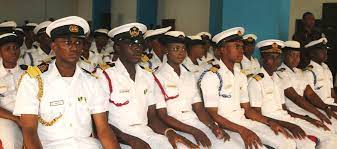
The menace was first brought to the fore in 2019 when Shipping Position Daily reported that some government officials were complicit in issuing fake CoCs to unqualified individuals in exchange for bribes. This revelation stirred public outrage, but investigations and corrective measures have yet to fully resolve the issue.
At that time, officials of NIMASA were fingered in the booming racket of issuing certificates to incompetent and unqualified seafarers, for money.
Our correspondent had gathered from insider-sources that the half-baked seafarers allegedly paid between N75,000 to N85,000 to get different Certificates.
A source who confirmed our findings said that, “we saw people who went to do a one-year course in Ghana on maritime related course and when they come back, as soon as they pay N85, 000, the COC will be given to them, we have cases of people who didn’t go to any maritime school, getting the COC, as long as they have the money the certificate will be issued”, he alleged.
Another source lamented that, corrupt Ship Masters are involved in the trending certificate racketeering.
“The Ship Masters are the ones who are meant to check the competency of these people, but as soon as they are given the money, they will recommend to NIMASA who then issue the certificate”, he added.
A seafarer who pleaded anonymity confirmed to our correspondent that there are such cases and some of the seafarers pay their way to get the certificate.
“We have cases like that, yes I know of some of my friends who actually paid their way through to get the certificate, although they have the required training, however the stress of going through the process of going for medicals and other things takes months, but as soon as they can afford the money required, the process will be fastened and in less than two days, they get their COC”.
And in 2020, NIMASA’s then-Director-General, Dr. Bashir Jamoh, acknowledged the gravity of the situation when he disclosed that 475 fake CoCs had been uncovered among Nigerian seafarers. However, the persistence of fraudulent certificates in the sector suggests that the measures put in place by NIMASA have not been effective in stemming the tide of certificate forgery.
But, speaking with our correspondent last week, the National President of Nigeria Merchant Navy Officers and Water Transport Senior Staff Association (NMNOWTSSA), Engr Bob Yousuo confirmed the prevalence of fake certificates within the maritime sector, describing it as part of a broader societal problem affecting various aspects of life.
Yousuo however stated that the menace is not unique to Nigeria, but a global challenge that nations grapple with. He emphasized that the existence of fake versions of virtually everything, from currency to professional certifications, is inevitable wherever there are original versions.
However, he noted that it is the government’s responsibility to establish systems and mechanisms to identify and address these counterfeits effectively. “Fake is always available, but it’s the duty of the government to put systems in place to check and verify,” Yousuo said.
The Merchant Navy boss pointed at the importance of leveraging technology, such as online verification systems, to authenticate certificates and documents. According to him, institutions like NIMASA have previously maintained verification systems on their portals, but he questioned whether these systems remain functional and effective today.
For Yousuo, resolving the problem of fake certifications is a crucial step in restoring credibility to Nigeria’s maritime sector and boosting its industrial reputation globally. He reiterated the need for government and stakeholders to take decisive action, not through mere rhetoric, but by putting tangible systems in place.
“If the NIMASA website is working, you can verify certificates. This is a very simple thing. Technology has made it possible to do this even from your bedroom. We have the money. We have everything. But when you come to Nigeria, everything is on the other side. The government has a duty to identify and check these things. Verification is not a big deal, if the right systems are in place”, he stressed.
On his part, a former National President of the Nigerian Merchant Navy, Captain Thomas Kemewerigha called for a strategic and internal approach to address the issue of seafarers’ fake certification Nigeria to preserve the country’s credibility in the international maritime community.
Kemewerigha emphasized that fake certifications undermine the integrity of maritime states and can have severe implications, particularly as Nigeria seeks a position on the IMO Council.
Kemewerigha stressed that the problem often stems from systemic vulnerabilities rather than individual efforts. He pointed out that creating fake certifications requires resources and mechanisms that are beyond the reach of individuals, suggesting the possibility of internal collusion within maritime institutions.
He also criticized the tendency of some ship owners to cut costs by employing individuals with fake certifications, arguing that this practice not only undermines the industry, but also devalues the efforts of genuinely certified professionals. Offering fair compensation to qualified workers, he argued, is crucial to maintaining standards and credibility in the sector.
To combat this, Kemewerigha urged Nigerian stakeholders to establish more robust verification systems. He also suggested closer collaboration between ship owners, labour unions, and regulatory authorities like NIMASA.
He called on unions to take a more active role in verifying certifications, noting that regulatory bodies like NIMASA have the capacity to authenticate documents and ensure only qualified professionals are employed in the sector.
“The union can verify with NIMASA. If the company can verify, they will not employ the person. Ship owners are employing unsatisfied cheap labor Nigerians for their selfish interests, against the genuine, certificated Nigerians that have value. I will not encourage much publicity on it, because the disadvantage on the nation is too much”, Kemewerigha stated.
On his part, the immediate past President of the association, Engr. Matthew Alalade emphasized the need for critical reforms in the process of issuing CoC to maritime professionals in Nigeria. He also noted that certificate forgery is a global issue, but lamented the unique scale and intensity of the problem in Nigeria.
Speaking on the widespread issue of forged maritime certifications, he highlighted flaws in the current endorsement process, which he believes contribute to the proliferation of fake documents in the sector.
One of the key reforms Alalade proposed is the delegation of CoC endorsement to Chief Examiners rather than political appointees. According to him, examiners who conduct the assessments are better positioned to verify the authenticity of candidates’ credentials.
Alalade further argued that political officers currently authorized to endorse CoCs may not have direct knowledge of the candidates or their qualifications, creating a loophole for fraud. By ensuring that examiners, who have firsthand knowledge of candidates, are responsible for endorsements, he believes the integrity of the certification process can be restored.
The Chief Engineer expressed hope that implementing these measures would significantly reduce incidents of certificate forgery, thereby enhancing the credibility of Nigeria’s maritime workforce.
“Let the chief examiner endorse the certificate finally, so that you can hold him accountable. If it’s the political officer that is signing, anything can happen. He doesn’t know who wrote or passed the exam.
“If the examiner signs, he can categorically confirm or deny knowing the candidate and this will help curb forgery. This forgery will die down if we hold examiners accountable” Alalade asserted.

